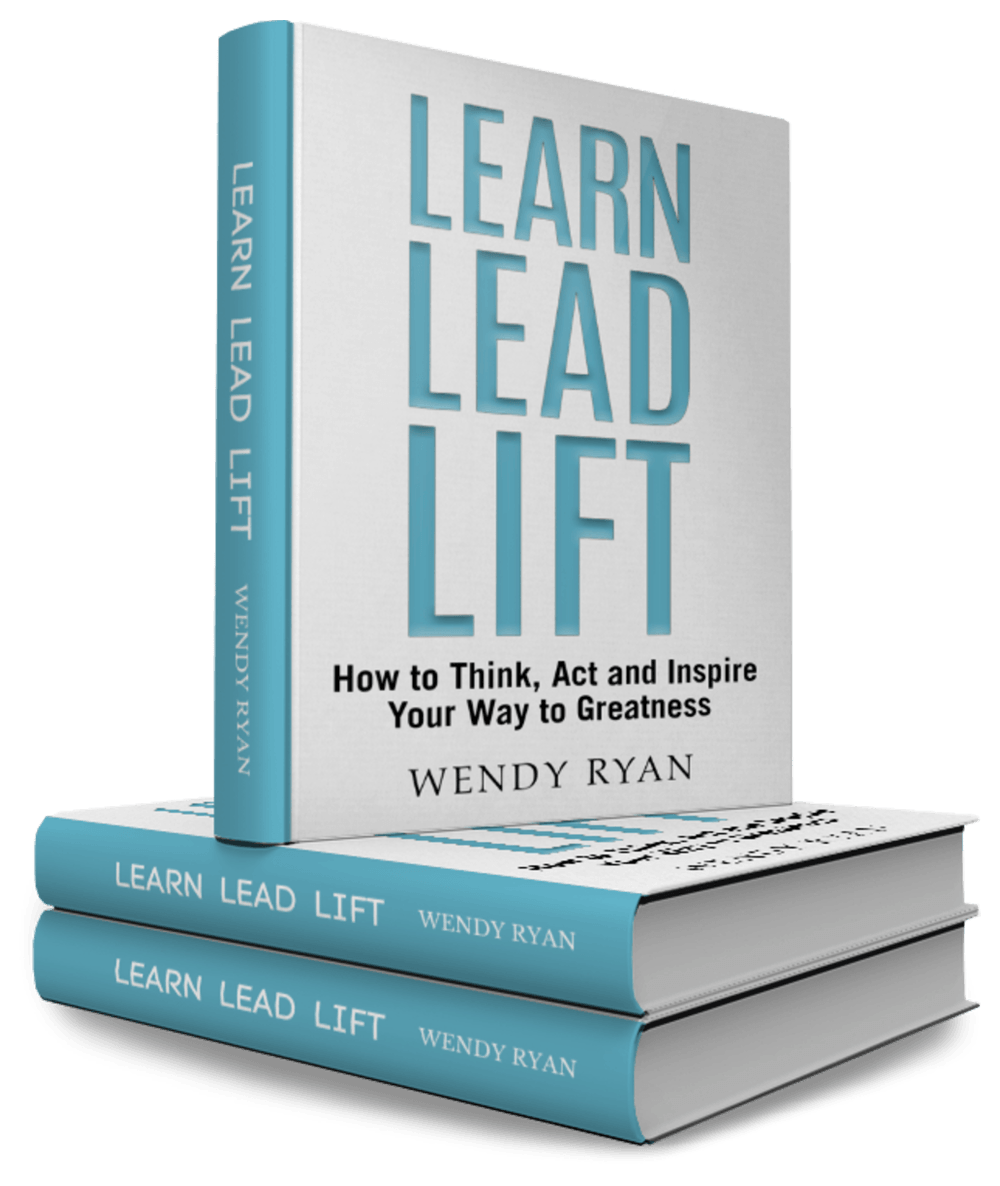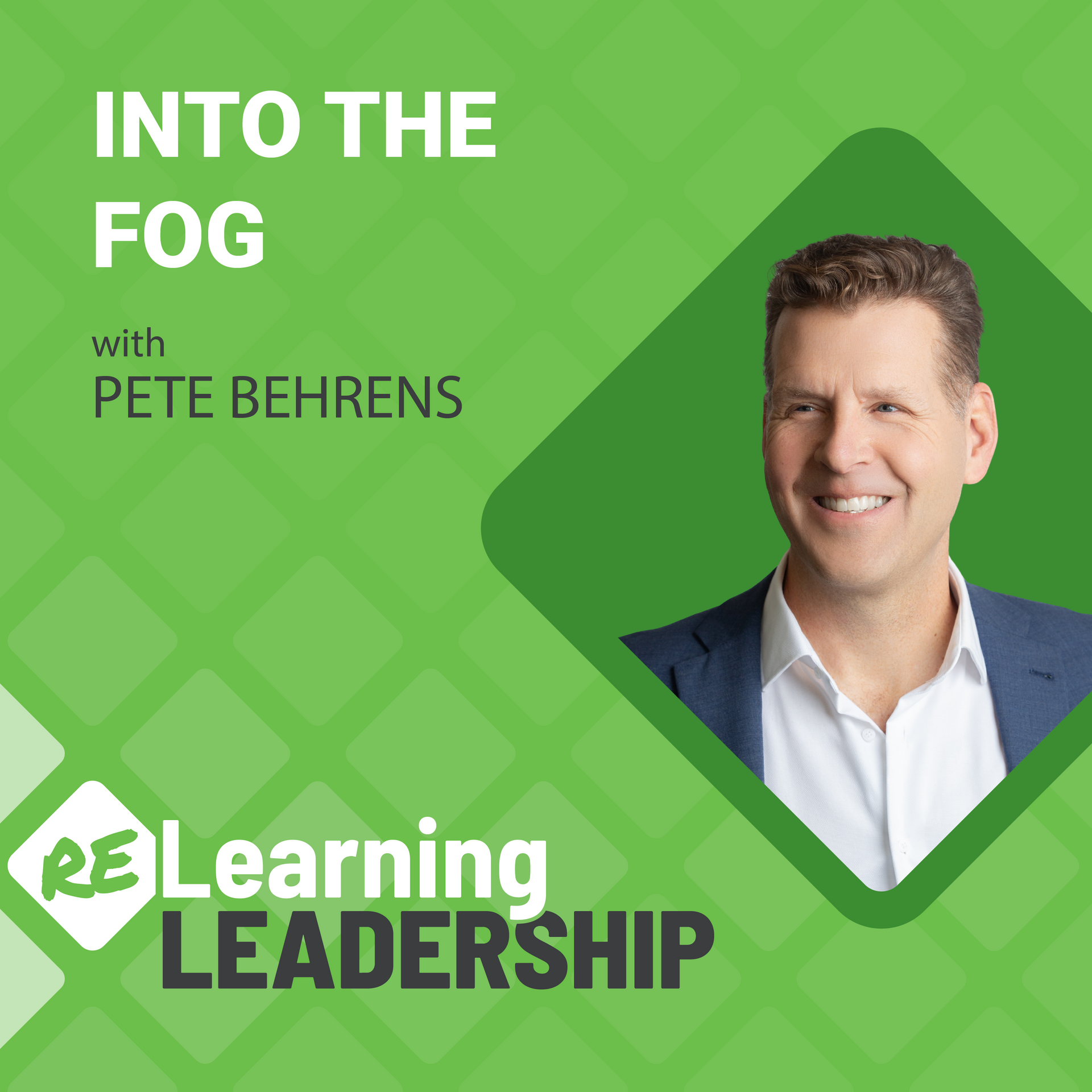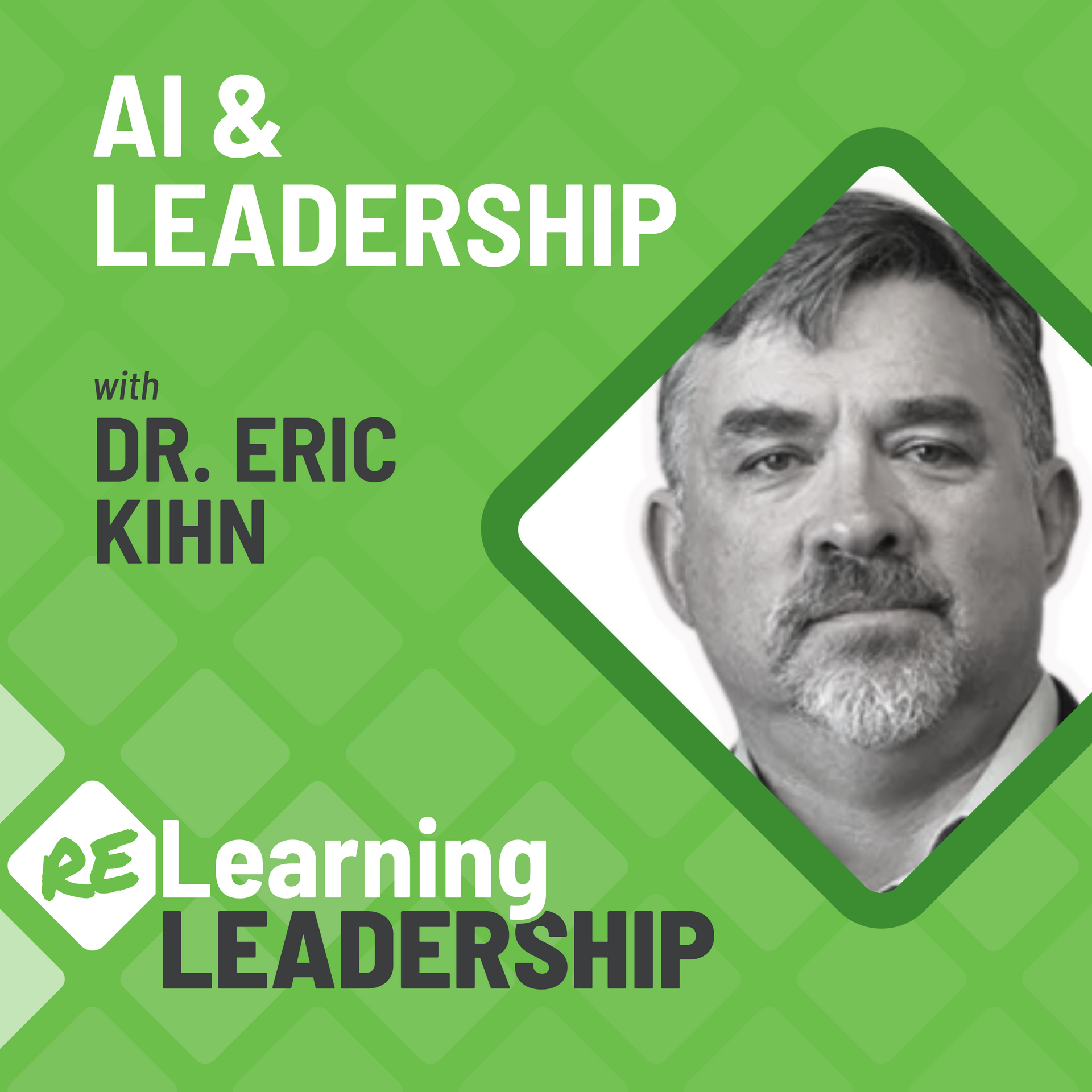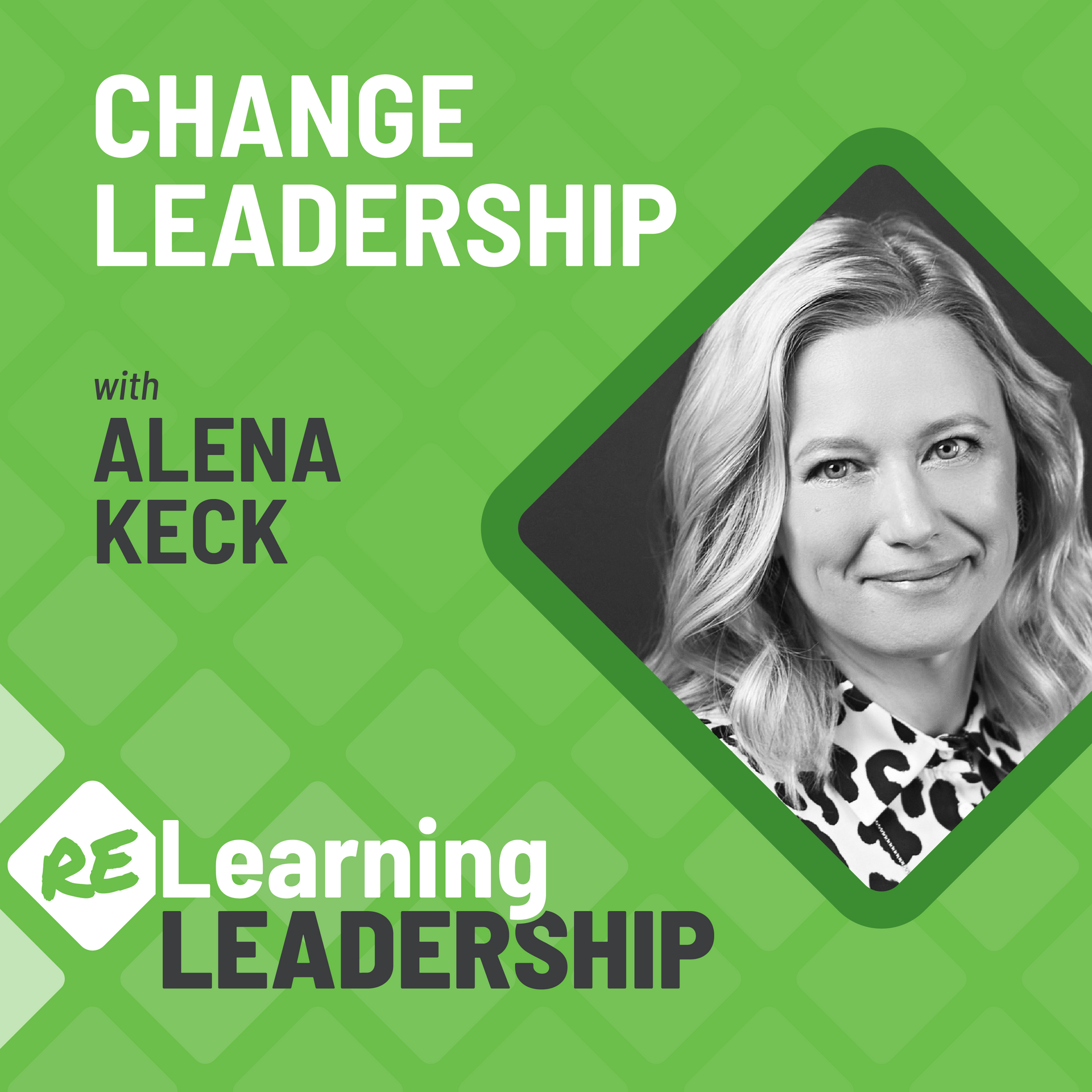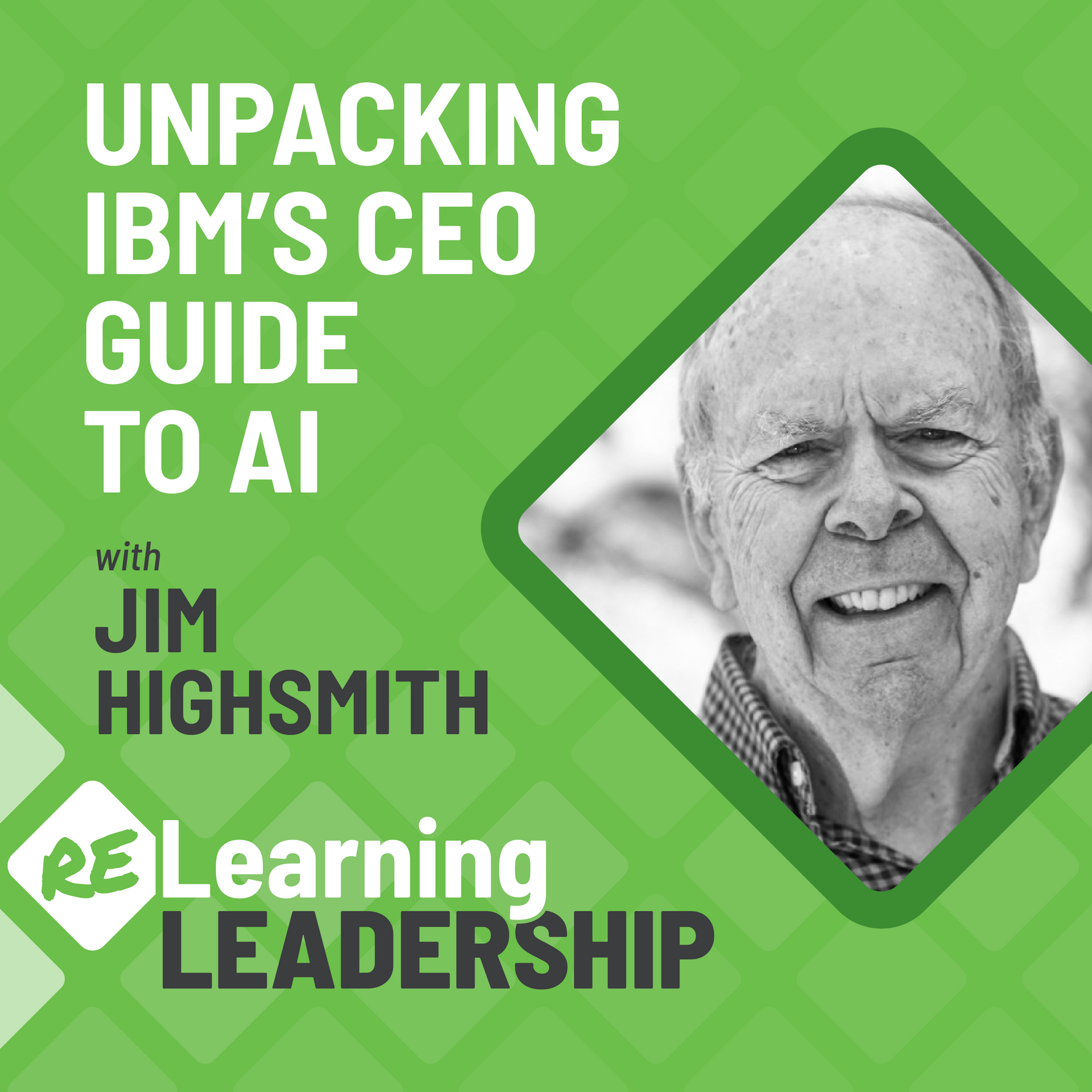16: Exploring Identity in The Workplace
Why, and how, should leaders acknowledge identity in the workplace?
Pete is joined by Wendy Ryan - a CEO, author and trauma survivor exploring identity in the workplace and the leader’s role not only to acknowledge it, but to actively lift others up.
Wendy Ryan is the CEO of Kadabara, author of Learn Lead Lift, and advocate for expanding diversity, equity, inclusion and accessibility at work. Together they explore identity in the workplace, how culture and trauma impacts identity, and the role leaders play in creating space for employees to bring their whole selves to the workplace.
Wendy Ryan, CEO, Author, Advocate
Wendy Ryan (she/her), MHROD, is the CEO of Kadabra, an interdisciplinary team of leadership and change experts based in Silicon Valley, California.
In addition to her work with Kadabra, Wendy is an active mentor, strategic advisor and angel investor in early stage, BIPOC, LGBTQ++ and womxn-led companies and an advocate for expanding diversity, equity, inclusion and accessibility in the investor and business ecosystem.
She wrote the book Learn Lead Lift as part of her 50-year celebration and a recognition of the leaders who emerge from everyday life in non-traditional leadership roles.
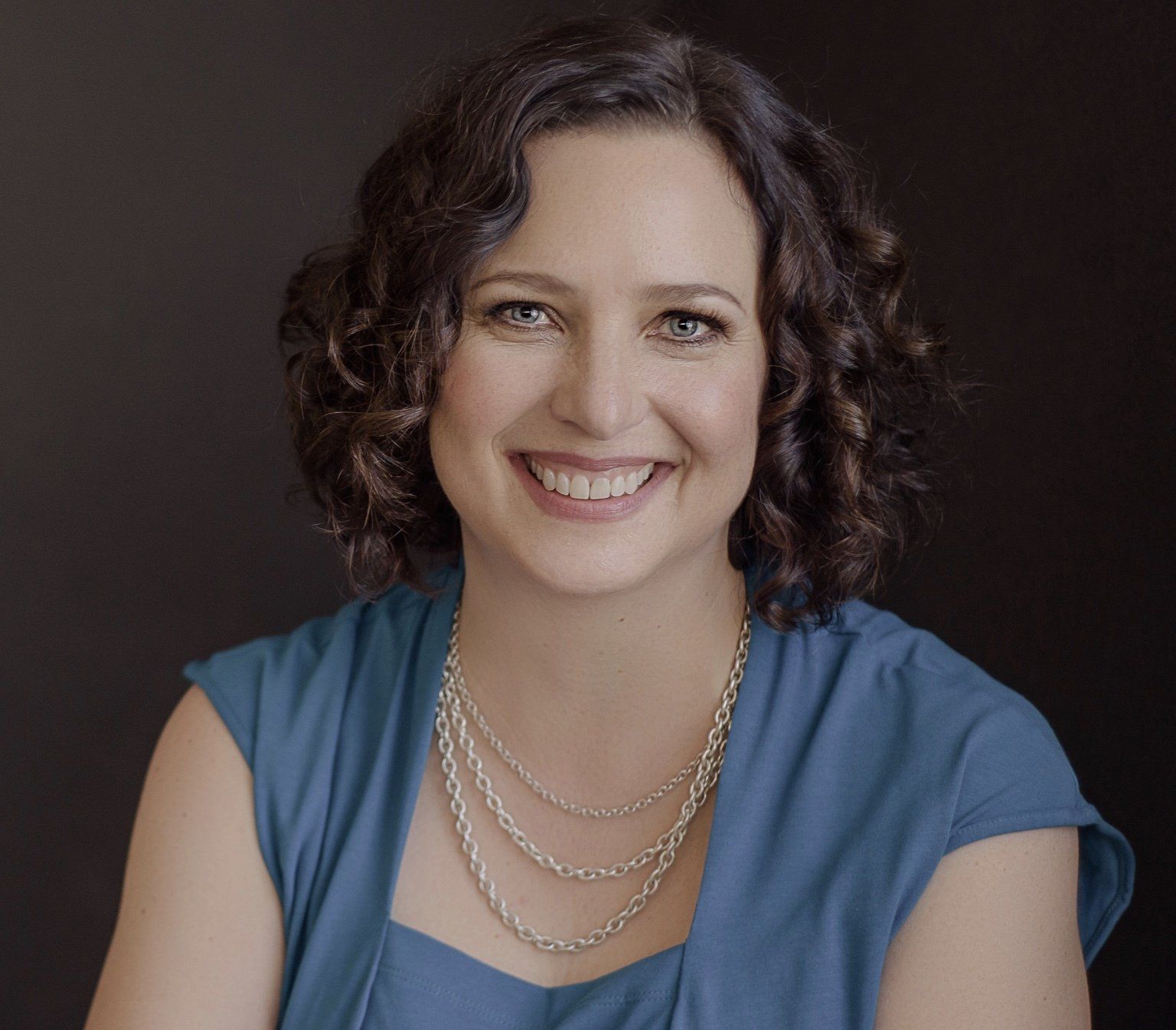
Pete’s Thoughts on Learn Lead Lift
Leadership is not a title. Rather, it is a gift and an act of service to those in your care. All too often leaders are drawn to power, status and the perks of leadership as corporations have put significant compensation for leadership roles. And it is true that a great leader will magnify an organization’s potential in unbounded ways, as we have seen at Microsoft through CEO Satya Nadela. However, more often we see how a leader’s compensation does not equate to their average or even negative impact on those in their care.
Learn Lead Lift reminds us that leadership is a journey and that every one of us have leadership capacity to shape and influence the culture around us. Just as Wendy shares in her compelling story in a Zoom meeting where she pivoted in the moment to take care of the business that day, which happened to be nothing to do with the work to be completed but rather to the people engaged in that work. How leaders think drives how leaders behave. Wendy connects the tissue of leadership between mindset, skills and behaviors - something we share with her through our Agile Leadership Journey programs.
Order a copy of Learn Lead Lift
Relearning from Wendy's story…
It doesn’t get past me that the topic of identity touches incredibly diverse and personal perspectives that a single episode or individual cannot begin to cover. That said, I am hopeful that this dialogue might be considered a starting point, or a next step, in a journey for you as a leader.
As an older, Caucasian, cisgender male, I am the definition of the normative ideal. And my privilege quotient is often quite high as a result. Yet, I’m hopeful that this platform can be a space to invite, respect, and explore diverse perspectives on leadership and organizational culture. And this season, we’re seeking to lift up some of those voices.
Today, I learned three key things.
- I am more aware today of the permanent scars that trauma imprints on a person’s identity. And how new trauma might expose and magnify past trauma.
- Creating a safe space for, and acknowledging, identity doesn’t mean we are taking responsibility to help fix others’ struggles or challenges from it.
- Those of us with higher privilege quotients must take an active role, not just to acknowledge others, but to actively lift them up.
We Celebrate Joy Zimmerman’s Milestone
Joy Zimmerman, the creator of the music you hear on this podcast, is celebrating an award-winning album this summer. The Canvas Before Us reached Top #8 on the International Folk Chart!
Visit Joy Zimmerman Music
This week I was drawn to her track,
One Precious Life. Her line in the song that struck me most, and connected me to the lessons shared by Wendy is “Have we tended wounds of others on the road, even when our hearts were broken?”
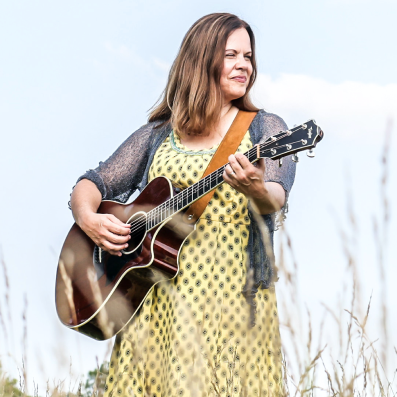
Episode Transcript
Pete Behrens:
Why should leaders acknowledge identity in the workplace?
Welcome to another episode of (Re)Learning Leadership, where we explore a specific leadership challenge and break it down to help improve your leadership, your organization…and even your personal life.
Today, we meet Wendy Ryan, a CEO, an author, and a trauma survivor, seeking to develop leaders to nurture more inclusive and equitable working environments.
Wendy Ryan:
Just asking someone, “How are you doing? Are you okay? Would you like to share, what's going on?”
does not mean you're signing up to be their therapist. And it doesn't mean that you are taking the responsibility for them.
Pete Behrens:
Together, Wendy and I explore the topic of identity through the lens of culture and trauma, and the leader’s role in creating space for others to bring their whole self to the workplace, for improved employee health and business performance.
I’m Pete Behrens. Thank you for joining us today. Let’s dive in.
Wendy Ryan has a Master of Human Resource in organizational development and is the CEO of Kadabra, an interdisciplinary team of leadership and change experts, based in California. She's also an active member, strategic advisor, and angel investor in early stage companies, with an emphasis on diversity, equity, and inclusion. Oh! And she's the author of a new book, Learn Lead Lift. Wendy, welcome to the show!
Wendy Ryan:
Hi, Pete! Great to be here.
Pete Behrens:
Well, your personal bio is certainly amazing. But how would you answer, “Who is Wendy Ryan?”
Wendy Ryan:
I love that question, by the way, because there are so many places we can go with that. But I like to start by making sure people know that I was born in Wichita, Kansas. That grounds us in my origin — right? — which is middle-America, Midwest, all of its politeness and a pace of life that is very different from where I live now, which is Silicon Valley, California.
I've also had the opportunity to live in Madrid, Spain; in Boston, in L.A, in Madison, Wisconsin. So, I would say that I have picked up a little bit from each of those places and cultures. And I think it's also important for people to know that I'm married, 26 years. I'm the mother of three children and a dog. So, in terms of my professional life and my personal life, both have been very full. And, I think, too often we just don't put enough value or attention on people's whole life and what they're bringing forward into leadership.
Pete Behrens:
Well, I love how you are shaping identity. I want to start with your book and maybe get personal with you. What inspired you to write
this book, this one in particular?
Wendy Ryan:
Having spent 20 years in leadership development, I needed to talk about leadership. But who needs another leadership book with me just talking about what I think makes great leadership? So, I made the decision, “Hey! I want to go, and I want to talk to people who we don't necessarily think of as leaders.
Maybe they don't have that title or they don't self-identify as leaders, but I bet that they have something to contribute to the conversation.” And I deliberately invited artists and athletes, therapists, parents, investors, all kinds of different people. And I asked them what they thought great leadership looked like. And then the book really became, at that point, this conversation between my life and their stories.
Pete Behrens:
What I really picked up on your book is—when you started to hit on identity. Could you maybe expand on what that means, to lead with identity?
Wendy Ryan:
Sure. I'll go back to 2020, which I know is no one's favorite year. [Laughs] But it wasn't very—
Pete Behrens:
I can't imagine why! [Laughs]
Wendy Ryan:
Right? Right? Can't imagine! But it certainly was a year that, I think, everyone on the planet could agree was a big deal—that something meaningful or difficult or challenging happened. And so, I distinctly remember I was about 75, 80 percent done with the draft of the book, and I was planning to finish it Spring 2020. And then the pandemic hit. And then George Floyd's murder occurred. And I made the decision, at that point, to put the draft down and give myself permission to really do some further introspection and some learning. And identity was part of that. And I felt like I need to do some more work here to understand better what's happening. And then I'm gonna pick up the book, and I'll look at it and see if it makes sense or if I need to start over. So, I was literally prepared to just toss out everything I had and start over. Because what I didn't want to do was put out a book that held the collective wisdom of so many people—that I felt like they'd given me this gift to shepherd into the world—and not talk in a constructive way about identity.
But as I look back, even before that, I became really aware that identity was having a profound impact on people's experience. But what was the impact it had on my personal experience? What impact is this having on women, specifically? And how do we integrate that into leadership? I think the book is better because I took time out to do some work around that and understand that.
Pete Behrens:
You mentioned Black Lives Matter, you mentioned women in the workplace. Are there specific diversity groups that you're focused on, in terms of bringing a bit more equity and inclusion
into the workplace?
Wendy Ryan:
I wish I could say that there's one particular identity that I feel like I have the answer for “How do we create more equity for people who hold that identity?” I think what's become really, really clear to me, and reinforced over time, is that it's much more about having the intention as leaders and as organizations to be inclusive and to create more equitable systems. And when we look at who is marginalized, regardless of how they identify, and we design to correct for that, everybody actually ends up benefiting. Even the people that don't hold marginalized identities.
Pete Behrens:
It doesn't get past us that—here, we have two Caucasian, older leaders talking together. But I've been taught that the people in power need to change the systems of power. And so, it's not just being able to walk with them. It's not just being able to empathize. It's up to us, those who have more default power and status, to make a difference. It's up to us to start to change that system. So I applaud you for taking a role in that.
Wendy Ryan:
Well, I'm right behind you, in terms of
what I call the
privilege quotient. So, I am white, cisgender, heterosexual, neurotypical, able-bodied, woman. So the only place that I think I've experienced that marginalization, really, is around being female-identified. I would never claim to understand what a Black, transgender, autistic woman is going through or has been through in their experience. But I can access compassion and empathy around what it feels like to be marginalized. And I think that's important.
We have to as leaders—regardless of the identities we hold and the level of privilege that we carry—we have to be able to tap into that empathy and find the motivation to want to understand what other people's experience has been. And to be able to ask the question, “What do you need, and how can I support you to be successful?” without judging it and without getting into an argument or becoming defensive around, “Oh, well, I guess I could have been doing this the whole time, and I'm just now learning I should have been. And so now I'm really upset!” No. That doesn't serve us well. So, it does start with us. I think you're absolutely spot on about that.
Pete Behrens:
Probably the quote that jumped out to me the most in your book, and I'll quote here: “Leaders who do not explicitly acknowledge identity and cultivate cultural humility are exercising their privilege over others in ways that are harmful, not just to others, but to also themselves.” And you mention privilege here. Would you mind expanding on that impact of privilege?
Wendy Ryan:
I recognize that privilege is a very loaded term, and people do have a lot of emotion around it. And depending on your background, your experience, the work you do—all those reactions are valid. From a leadership perspective, what's important is that we recognize that privilege does exist, and it's—we're talking about unearned privilege. So we're talking about, really, how closely you conform to this ideal, what we call the
normative ideal.
It really goes back to our 19th and 20th-century industrial revolution-based models for management, which had a lot of built-in assumptions about who was capable and who was most qualified to lead. And that ended up being white, male, hetero, cis men. So, that has become, whether we like it or not, the normative ideal. And so, this whole idea of privilege—it's not saying, “You're a bad person if you're a white, male, hetero, cisgender guy.” It's saying that, “Recognize that you happen to really closely resemble that normative ideal; therefore the systems have really been designed for you.”
And so, Pete, when you walk into almost any space, your general privilege quotient is high because of the identities that you hold. Not because of anything you've done wrong or right. It just is. And in other situations, you might walk in and, depending on who else is in the room, your privilege quotient might be higher or lower relative to theirs. And so, that's the other thing for leaders to understand—is that this is not always a static thing. It's a dynamic thing. So it shifts. And we can become a little more agile with this, to our collective benefit. But we have to be willing to think about it and understand the implications of privilege for ourselves and others in order for it to be useful.
Pete Behrens:
When we teach and coach around this, we often use the word
default power.
You give somebody default power based on those cultural norms. And as a tall, white, male, older, owner, and an expert in certain fields, I'm given default power that, unless I specifically, actively strip some of that away—it's given to me, regardless of my intention. And I think it's so important as leaders start to recognize how these identities are not only self-held, but how others see them.
Wendy Ryan:
Yes. And it begins to help us understand how two different people sitting in the same meeting, hearing the same message, working on the same project, can be having vastly different experiences. And I think that is also part of what the leverage for leadership is—when we're willing to really take privilege seriously and understand how to work with that in constructive ways.
Pete Behrens:
Hm. I really love how you're getting into the fact that it takes an agility, which means I have to have self-awareness. I have to be able to adapt in the moment, depending on the interaction of who's in the room and how I'm showing up in relation to that system.
Now, there's another part that I want to explore with you, and that is the concept of trauma. Now, you brought this up in your book—why is trauma coming up in the concept of identity, and how should leaders be thinking about this?
Wendy Ryan:
Yeah. I think for two reasons. For me, personally, it was important to have it be part of the book and have me acknowledge that I am a trauma survivor. Because, otherwise, I would not be showing up as my authentic self in writing the book. It would be a nicer version of Wendy Ryan that's maybe more comfortable for people, but not necessarily more relatable or accessible to the majority.
I think trauma has become much more broadly talked about in the last year-and-a-half because of the pandemic and because of Black Lives Matter. And there is increased recognition that more people have experienced or are experiencing a form of trauma. And I think that is to our collective benefit. What we know about trauma is that it produces real physical changes in our brains. It has neurological impacts that—yes, they can be undone to an extent, but it does affect people. And, in my case, the trauma has come in lots of different forms. It started with emotional and physical abuse. It turned into sexual abuse. And then, later in life, trauma due to deaths in the family, losing good friends very suddenly and tragically.
We know from research that if you experience adverse childhood events, as I did—and the more of those you experience, the more vulnerable you are to trauma later in life. Just in the United States, 1 in 500 Americans has died from COVID. So the chances that you are leading a team member or interacting in your network with someone who has lost a family member or friend is very high. So, again, for them, that might be the first time that something like that has happened in their life. But, for others, like me, this might be coming on on top of pre-existing traumas. And that's a whole different load to bear and to process. And so, the opportunity for leaders now is to make sure that the workplace is a space where we acknowledge that that's possible and we don't expect people to show up and leave that at the door. Because—I will tell you firsthand—it's not possible. It comes with you wherever you go.
Pete Behrens:
Yeah. Well, I appreciate you sharing some of that personal side. And maybe I'm naive into thinking this is trauma, but seeing Satya Nadella share some of his story about his child with special needs. And, here you have a leader who's CEO of Microsoft, sharing, quite vulnerably. And sharing how it impacted his fatherhood, parenthood, how it changed himself as a leader. I guess I just share that as just, maybe, a public example of how somebody could use their own personal challenges to be more vulnerable, to have that courage to share. What else are we asking leaders to do to be respectful of the space or to create space, I guess, even for this to emerge or be part of the conversation?
Wendy Ryan:
Yeah. I think that a lot of leaders that I work with initially are worried that if they open the door to making space for people to show up, that they will be taking on the responsibility to fix it for them. And so, I think the first barrier we need to hop over is understanding that just asking someone,
“How are you doing? Are you okay? Would you like to share what's going on?” does not mean you're signing up to be their therapist, and it doesn't mean that you are taking the responsibility for them. What it does do is—it communicates that they are seen, and that you have compassion, and that you are willing to help them create a safe space for themselves at work.
Sometimes people need very little. Maybe they need five minutes by themselves in a conference room before a big presentation. Maybe they need to work from home for a day, which, I think we've all learned in the past year-and-a-half, might not seem like quite the wild request it used to. But it has such power, and in a time where we are desperate to keep people from resigning, and we are desperate to fill open positions. I think, just from a very pragmatic point of view, leaders really need to be thinking about every engagement tool they can. And, certainly, this is one of them. I don't want to say that's the only reason to do it. I think there's a huge humanistic and moral case to do it. But if we want to lean on the pragmatic side for a moment, there's a real business case here, as well, to be made for mental health not being off-limits in the workplace. And, again, it doesn't have to be getting into the weeds and all the details. It just has to be acknowledging that you want to know how to support people and that you are open to working with them to make that possible.
Pete Behrens:
Yeah. I like the simplicity of just creating some space for people to be able to show up.
Wendy Ryan:
If I might share an example that
was really powerful for me this last year. When the Derek Chauvin trial was going on there and the results were due out that week—you know, our PR team that we work with happen to be a group of Black women. And my team—we were on a Zoom call together. And, I think it was the day before the verdicts came out. And I remember very vividly being on that call, and I could tell right away that they were having a hard time, that the energy was low. And I just said, “Hey, are you all okay, or can we talk about how you're doing? Can we check in?” I was both very touched and grateful that they felt safe to say, “No, we're not okay.” And we had this whole agenda of things that we were going to talk about, and I made the decision in that moment. I said, “You know what? I don't care what's on the agenda today. I'm happy to sit here for as long as you need to talk about whatever you want to talk about, or to just sit here with you.” And we spent 45 minutes on the call. And probably 20 minutes of that was just sitting in silence and just my team being with their team in solidarity and support. And it was very profound and meaningful, and it, again, was a good reminder for me. I didn't need to fix it. I didn't need to say anything. I just needed to show that we cared, and I just needed to show that being with them in that moment and holding space for them to be processing what was a traumatic event for them was more important than the business that needed to get done that day. Sometimes, business can wait. And I think that's another mindset shift that I really want to invite leaders to be thinking about and working on.
Pete Behrens:
Maybe I'll correct you—that was the business to be done that day.
Wendy Ryan:
Yeah.
Pete Behrens:
And I think you pivoted. And what I really appreciate about that is your real-time pivot. Because that's where a lot of leaders really, really struggle in—is when you get surprised by something like that. You may ask the question, like, “How you doing?” And if it doesn't come back, “Fine!”, you're like “Oh, shit! Now what do I do?” [Laughs] Counter your story with a story of a teammate on our team that shared after the Capitol riots. They showed up shaken and completely not in a space to collaborate. And her leader's like, “Okay, get on with it! We got to go.” And she's like, “Uh,
no. I need some space.” Well, needless to say, she wasn't with them for very long. And I think one of the things—obviously, the human catastrophe of COVID is massive, but I also think it's creating an employee ecosystem that's saying, “Hey, if I'm in these situations, I have choices.” People are making choices not to be in systems that aren't supportive. And that's a business decision. Yeah. Wow.
Wendy Ryan:
Yeah, let's not make it easy for people to leave us, when we can easily do these other things instead, that we're talking about, that help people feel so much more willing to stay and so much more invested in our collective success.
Pete Behrens:
So, maybe in closing here—what do you wish other leaders knew? Or what do you wish they acted upon more to improve their leadership?
Wendy Ryan:
I think one piece of advice is that great leadership exists because of the interaction of three different things. Your mindsets, which is how you think, your skill sets, which is what you know or know how to do, and your behaviors, which is how other people are experiencing you, how you show up. Traditionally, in leadership development we're working on our skills or we're working on behaviors, but we're not necessarily integrating mindsets or the other two together. My challenge to people in our field and to leaders out there is—let's acknowledge that all three of those matter, and let's start creating programs and experiences for people that really bring those three things together.
The second thing would be for leaders to ask themselves the question, “Why do I want to be a leader, and who am I being as a leader?” So, whether you end up in leadership by default—you're just the person that's been doing the thing the longest in your department, and so, suddenly, poof! You're the leader. Or you're someone who has really, deliberately, worked your way into leadership. It is still a very critical question to say, “Why do I want to lead? If I'm going to be in this role, what is the difference that I want to make? Who is the person that I want to be in this role?” And I think that is the best starting point for any journey to improve your leadership or to change your leadership. You've got to ground yourself in what Simon Sinek reminds us is our why.
Pete Behrens:
I just want to thank you, Wendy, for sharing your story.
Wendy Ryan:
Thank you so much for having me.
Pete Behrens:
It doesn’t get past me that the topic of identity touches incredibly diverse and personal perspectives that a single episode or individual cannot begin to cover. That said, I am hopeful that this dialogue might be considered a starting point, or a next step, in a journey for you as a leader.
As an older, Caucasian, cisgender male, I am the definition of the normative ideal. And my privilege quotient is often quite high as a result. Yet, I’m hopeful that this platform can be a space to invite, respect, and explore diverse perspectives on leadership and organizational culture. And this season, we’re seeking to lift up some of those voices.
Today, I learned three key things.
First: I am more aware of the permanent scars that trauma imprints on a person’s identity. And how new trauma might expose and magnify past trauma.
Second: creating a safe space for, and acknowledging, identity doesn’t mean we are taking responsibility to help fix others’ struggles or challenges from it.
And third: those of us with higher privilege quotients must take an active role, not just to acknowledge others, but to actively lift them up.
Thank you.
And stay tuned after the credits for another song from Joy Zimmerman’s top-chart album, The Canvas Before Us.
Relearning Leadership is the official podcast of the Agile Leadership Journey. It’s hosted by me, Pete Behrens, with analysis from our global Guide community. It’s produced by Ryan Dugan. With music by Joy Zimmerman. If you loved listening to this podcast, please leave us a review. And visit our website, relearningleadership.show, for guest profiles, episode references, transcripts and comments, and more. And to (re)learn more about your own leadership, visit us at agileleadershipjourney.com.
In each episode this season, we’re celebrating Joy Zimmerman’s album,
The Canvas Before Us, which reached #8 on the International Folk Chart this summer. This week, I was drawn to her track,
One Precious Life. Her line that struck me most and connected me to the lesson shared by Wendy:
“Have we tended wounds of others on the road, even when our hearts were broken?” Enjoy
One Precious Life
by Joy Zimmerman.
Explore:
Recent Episodes

